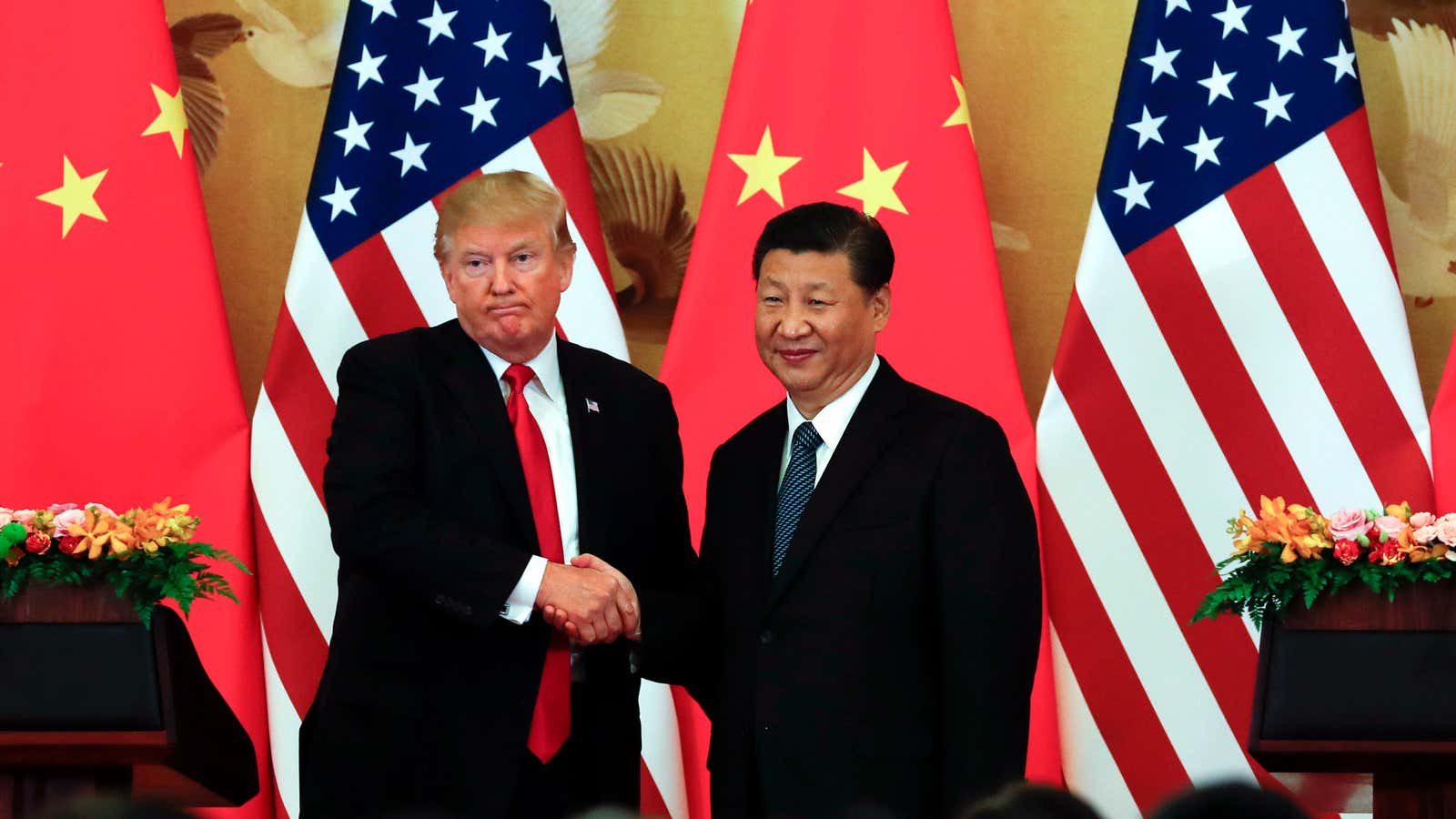Chinese telecoms company ZTE will likely continue to exist, thanks to a deal brokered between it and the US government today.
In April, the US Department of Commerce issued an order barring US companies from selling software or hardware to ZTE for seven years, after the company violated US sanctions by working with Iran and North Korea. As a result, the company, which was the world’s fourth-largest smartphone manufacturer in 2012, was forced to halt production on its products. Key US components—such as glass from Corning, processors from Qualcomm, and software from Google’s Android—were no longer available to the company, meaning it could not make many of its phones.
But then in May, US president Trump had an apparent change of heart; despite election promises of prioritizing US jobs, Trump publicly worried that ZTE’s near-bankruptcy was causing there to be “too many jobs in China lost.” Days earlier, the Chinese government had agreed to provide $500 million to an Indonesian real estate project that includes Trump-branded hotels, residences and golf courses. Today, commerce secretary Wilbur Ross told CNBC that the US struck a deal with ZTE to return it to business.
The deal stipulates that ZTE will overhaul its board of directors and executive team in 30 days. It also requires a US-chosen team of compliance experts to be embedded into the company, who will report directly to the next chairman. The deal exacts a $1 billion penalty from ZTE for its past sanctions violations, as well as $400 million held in escrow that will be forfeited to the US should ZTE violate sanctions again.
ZTE has already paid a $1.19 billion fine for violating US sanction. The April clampdown came after US claimed it had additionally misled regulators and not fired the executives responsible.
Critics like senator Marco Rubio have criticized the Trump administration’s willingness to cut a deal with ZTE, saying it undercuts US national security. Chinese telecom firms like ZTE and Huawei are suspected of having ties to the Chinese military, and their products already are banned on many US military bases.
